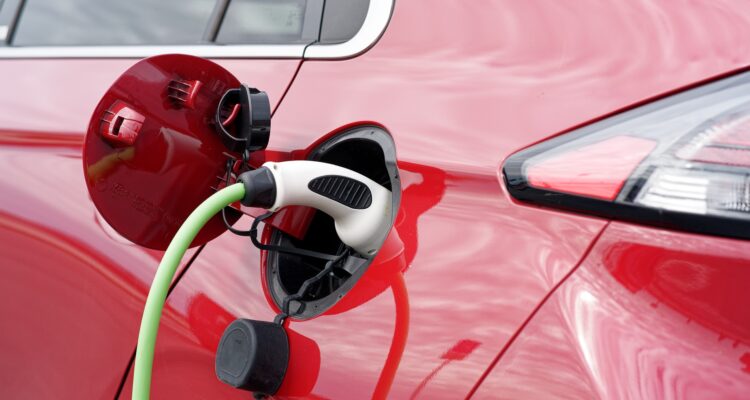The BBC revealed last night (19/09/2023) that the UK government, led by Prime Minister Rishi Sunak, is considering weaking some of the government’s key green commitments.
In particular, one element is the roll back of the 2030 ICE ban to 2035. This is likely to cause further costs and confusion within the automotive industry who have, for the past 3 years, been gearing up for the 2030 cut-off, and industry is now starting to express their concern.
The Prime Minister, Rishi Sunak issued a statement on the reports: “I am proud that Britain is leading the world on climate change. We are committed to net zero by 2050 and the agreements we have made internationally – but doing so in a better, more proportionate way.” He did not deny the substance of the report.
Ben Nelmes, CEO of New AutoMotive, the transport research group that contributed to bringing forward the UK petrol and diesel ban from 2040 to 2030, said: “Delaying the 2030 deadline would pull the rug from under motorists and industry, and would deal a hammer blow to the UK’s leadership on climate change. It would be incredibly disruptive for an industry which has invested billions based on what they were told was settled policy, undermining jobs and investment.
“The 2030 deadline is one of the few areas of net zero that will actually save people money. Shifting to electric cars and vans will drive down costs for UK drivers. This move will deny people access to cheaper motoring, and if we delay the ban, it will actually raise costs for motorists.
“This is a huge shock to the industry, which has invested billions in electrification – and on top of that, it’s also bad news for the planet. Pushing back 2030 risks putting net zero beyond reach.
“This is a cynical short-term attempt to politicise an area of sensible, settled policy. The car and energy industries have been working tirelessly towards this. I hope that Rishi Sunak sees sense and does not backtrack to the extent that it’s being trailed on Friday.”
Asif Ghafoor, CEO and co-founder of Northern EV charging network Be.EV, said: “The rate at which consumers have adopted EVs has been faster than predicted. The government must create policies that build on the public’s enthusiasm rather than sabotage it.
“Most car manufacturers have already pivoted away from ICE cars, most new models including more affordable EV models will be in the market by 2025 and a whole new manufacturing industry has sprung up in quiet, clean and modern EVs.
“We need legislation to unlock the power trapped in the system – but it’s all taking too long. Every leg of the planning, permissions, sourcing power and building process slows an installation down – charging networks are not able to move anywhere near quick enough to keep up with the amount of drivers transitioning to EVs.
“In decarbonising transport, we are facing a thoroughly novel challenge and a major industrial shift. If the government is truly committed to the EV transition, they have to take the strategic lead.”
Jon Lawes, Managing Director at Novuna Vehicle Solutions, one of the UK’s largest leasing companies, said: “Any rollback in the long standing 2030 deadline sends out the wrong message to manufacturers and drivers, and threatens future investment in the UK’s battery supply and charging infrastructure, both critical to realising zero emissions mobility.
“We’ve come a long way and can’t lose sight of the ultimate goal to reduce carbon emissions.”
Melanie Shufflebotham, COO and co-founder of Zapmap, said: “The Government should be looking to the future, not the past, so any suggestion of delaying the petrol and diesel ban would be foolish and irresponsible.
“The climate emergency is already here but Ministers continually fail to recognise the urgency of the situation.
“The growing popularity of electric vehicles shows that drivers are keen to play their part in the transition to cleaner transport, which is a critical part of our journey towards net zero. Any delay increases the risk that we’ll miss those targets.
“The number of public charging points is rapidly expanding – we’re approaching the 50,000 mark, with growth of more than 40 per cent in the last year alone – so the direction of travel is clear.
“The Government must stick to its promises and start thinking long-term rather than short-term.”
David Savage, Vice President, UK + Ireland, Geotab, said: “Reports that Prime Minister Rishi Sunak is seeking to water down the government’s net zero commitments are concerning, particularly with regard to the transition to zero-emission vehicles, as we collectively face the existential threat of climate change.
“All of us in the transportation industry have been investing heavily in this transition, from vehicle manufacturers to fleet operators, and infrastructure providers alike. This morning, many of these stakeholders will be feeling let down and betrayed by the government.
“We need to be investing more in this transition, not reversing it. Not only to stimulate the UK’s position in this emerging sector, but also to build a sustainable future for us all. The government has already walked back various incentives for Zero Emission Vehicles—and despite the Prime Minister’s claim that the long-term interests of our country must come before “short-term political needs”, climate change is simply not going to wait.
“At Geotab, we are committed to a greener future. Our Macro EVSA study demonstrated that six-out-of ten ICE vehicles are ready to transition to electric today. The recent discussions around the introduction of the ULEZ zones shows how harmful tailpipe emissions are in heavily populated areas. The decision by the government to withdraw the plug-in car grants (PICG) and then potentially delay the ban on the sale of ICE vehicles beyond the 2030 deadline creates a huge amount of uncertainty, when what we need is a strong and clear commitment to a greener future.”
Alfonso Martinez from LeasePlan UK, said: “We urge the government to stay on track with its 2030 target and maintain the UK’s position as a leader in zero-emission technologies. Now more than ever, we need to demonstrate consistency and commitment to achieving environmental and sustainability goals. Pushing back timelines could send a confusing message to both businesses and consumers and hinder the ongoing efforts to decarbonise the mobility sector.
“For the past few years, we’ve been working in lockstep with the government’s ban on the sale of new petrol and diesel vehicles, helping UK businesses and public sector bodies prepare their drivers and decarbonise their fleets. The end results are always the same: once people make the switch to electric, they realise just how good these vehicles are – quieter, more economical, cleaner and cost effective.
“I believe the UK has the potential to be a world leader in zero emission mobility – we currently sit at number 3 for Europe for EV maturity – just behind Norway and the Netherlands. A move like this will undermine the great progress made in clearing our air and reducing C02 emissions – and could set us back years, if not decades.”








John
( Wednesday, September 20, 2023 - 11:28 )
thank god!